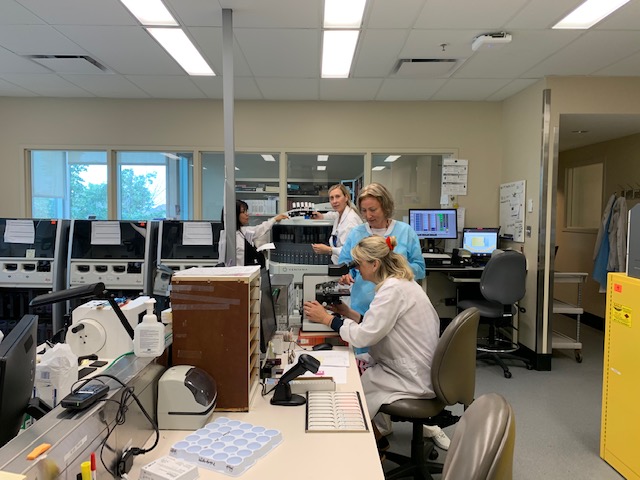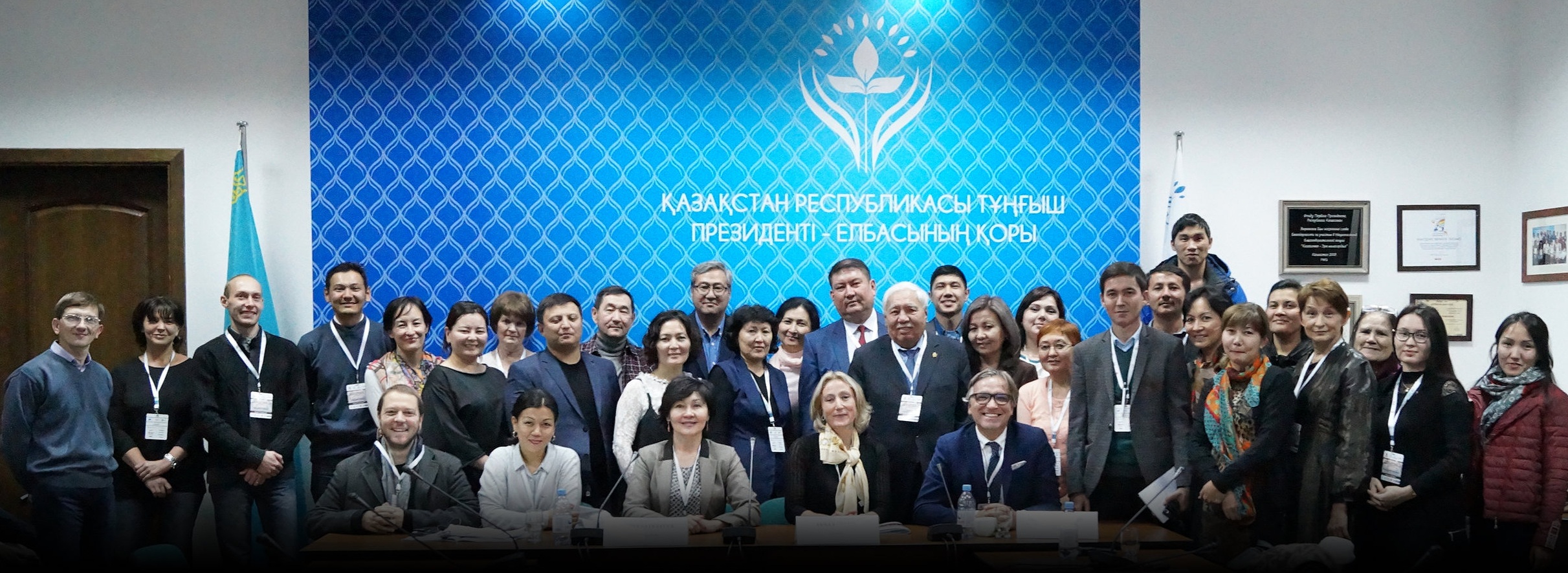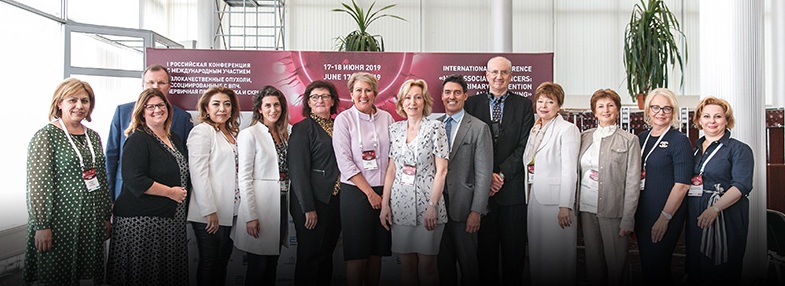Promoting Research Training and Education
Bilateral Mentorship and Education
Professional Courses. AECA has effectively facilitated research training delivered through high-quality, multidisciplinary professional courses designed to enhance knowledge and skills. Primary areas of international education exchange include urologic and gynecologic oncology, hematology, radiation oncology, pathology, immunotherapy, cancer prevention, palliative care, and pediatric cancers.
Tele-mentoring Exchange. AECA, in coordination with international cancer research organizations, delivered diagnostic oncology experiences through scientific tele-mentoring discussions and tumor board reviews. This type of exchange provides researchers with exposure to rare cancer cases and has led to increased international collaboration efforts.
International tumor board review conducted through IGCS Project ECHO tele-mentoring, including North American and Eurasian participants
Basic Cancer Research Training Fellowships. AECA collaborates with Eurasian universities to bring top early-career researchers to train in basic cancer research at state-of-the-art cancer centers in the U.S. AECA optimizes the strength of Eurasia cancer research to align with U.S. research interests, with trainees contributing to research in cancer biology, epigenetics mechanisms of gene expression and regulation, and targeting signaling networks to improve cancer therapies, among other topics.
Train-the-Trainer. AECA established laboratory and clinical research mentoring programs and developed a “train-the-trainer” model successfully implemented at U.S. cancer centers and research laboratories. Through initially established relationships between top Eurasian universities and NCI-Designated Cancer Centers, AECA created research networks to allow for sustained engagement with U.S.-trained fellows.
Oncology Specialty Training
Academic and scientific delegation of palliative care experts assess progress on the Eurasian-based International Palliative Care Center, 2018
Developing training guidelines in palliative care with Dr. Thomas Smith of the Johns Hopkins University School of Medicine in Baltimore, Maryland, 2015
Palliative Care: AECA supports the development of an International Center that will serve as a Russian-language regional hub for palliative care education, research, and training. The Center is planned to become the formal counterpart of international training facilities, adopting standardized methods of palliative care research and delivery throughout Eurasia.
Gynecology: In partnership with the International Gynecologic Cancer Society and international cancer centers, AECA continues to provide gynecologic oncologists from around the world access to scientific infrastructure in the Eurasian region. The program achieved measurable success in developing strong connections between researchers through exposure to exclusive medical practice and innovative didactic teaching sessions.
Pathology: AECA, in coordination with both U.S. and Canadian cancer research organizations, designs diagnostic oncology training through multidisciplinary tumor board reviews of patient cases. This exchange provides researchers with exposure to rare cancer cases and leads to international collaboration efforts and disease management protocols within domestic and international settings.





